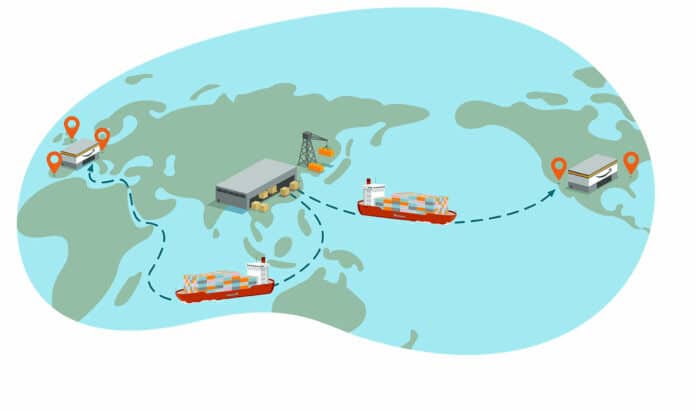Cutting carbon emissions from harder-to-abate sectors like heavy transport is important to avert runaway climate change. However, like aviation, maritime transportation is considered one of the hardest sectors to decarbonize.
To help speed things up, the Aspen Institute has launched ZEMBA – the Zero Emission Maritime Buyers Alliance, together with co-founders Amazon, Patagonia, and Tchibo. The mission of ZEMBA is to enable companies to access zero-emission shipping solutions that are not currently available. The new Alliance was announced during the Aspen Ideas: Climate event in Miami Beach, Florida, USA, last week.
Through this initiative, freight buyers will accelerate the commercial deployment of zero-emission shipping, enable economies of scale, and help minimize maritime emissions. By working together, ZEMBA members will offer committed demand to build confidence among investors, carriers, ship owners, and producers of zero-emission fuels and renewable energy.
By providing committed demand for new fuels and technologies needed for the nascent market for clean shipping, ZEMBA’s efforts can also help create new and sustainable worldwide economic models in renewable energy, zero-emission fuel production, infrastructure, and clean maritime services.
ZEMBA plans to issue a Request for Proposal later this year to forward procure maritime shipping services that achieve zero or near-zero emissions on a lifecycle basis for all greenhouse gases, not limited to carbon dioxide. The delivery of these services is expected to start as soon as 2025 or 2026.
Through ZEMBA, cargo owners aim to kickstart the clean energy transition in an essential industry that supports 90% of all global trade and services millions of communities worldwide. But ZEMBA cannot solve this challenge alone – complementary action from global, regional, and domestic policymakers is needed to support the smooth scaling and economic viability of these zero-emission solutions so that they become the new normal.
“Decisively shifting to zero-emission maritime alternatives makes good business sense in a changing world where the business-as-usual approach no longer aligns with the values of many consumers around the world,” said Ingrid Irigoyen, President and CEO of ZEMBA. “ZEMBA’s co-founders realize that we have an opportunity now to ensure that this clean energy transition in shipping works for businesses that depend on reliable, affordable, and environmentally responsible maritime transport into the future.”
In addition to the ZEMBA, the Aspen Institute also organizes the coZEV 2040 Ambition Statement, where 19 global brands to date have announced their ambition to exclusively use zero-emission shipping for their ocean freight by 2040. coZEV released the Roadmap to 2040 at COP27 in Sharm El Sheikh, Egypt, which includes action on policy, green corridors, and the launch and continued growth of ZEMBA.
